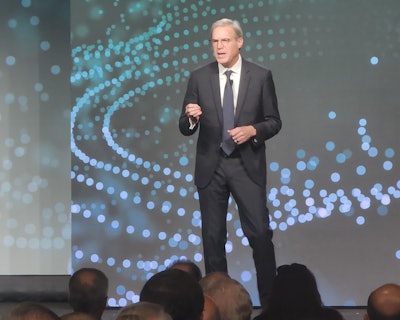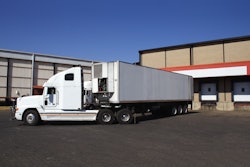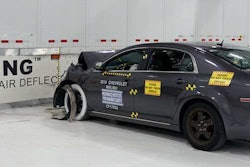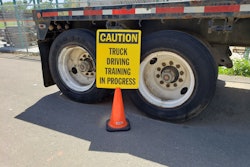
Outlining the threats facing carriers and the trucking industry at large, American Trucking Associations President & CEO Chris Spear took dead aim at unions, trial lawyers and environmental extremists in his remarks to attendees at the 2023 ATA Management Conference & Exhibition in Austin, Texas.
“Together they constitute a clear threat to our industry's ability to grow and support our nation's economic security,” said Spear. “Theirs is a twisted tale of perception putting companies out of business and workers out of jobs. Their objective is simple: to claim that they speak on behalf of the hardest working people in America.” Spear added that union groups spent $1.8 billion in the last presidential election cycle to achieve legislative wins for pro-union initiatives.
Spear said Acting U.S. Labor Secretary Julie Su should never be allowed make a number of those efforts a reality, including The Protecting the Right to Organize Act, federalization of California’s AB5 legislation and efforts by some states to create their own meal and rest break rules that preempt federal requirements.
“They're all engineered to rewrite a century of labor laws and reverse decades of plummeting union membership,” said Spear. “[Su] and others like her embrace a culture of, ‘If it's good for us, do it, and if it fails then blame somebody else.’”
Spear said the trucking industry is already pro-worker, citing a 15.5% rise in driver pay in the last year and a median salary of more than $70,000 plus benefits, as well as federally backed apprenticeship programs to help drivers become safer and more responsible at their jobs.
“So how is it that we're all blamed when apprenticeships have the unwavering support of the unions and this president?” said Spear. “Our workforce will not be fooled into a false sense of security. Thirty thousand hard-working Yellow employees lost their jobs because one of the two parties refused to come to the table.
“ATA stepped in, connected those looking for a job with our thousands of members in need of their talents,” Spear continued. “What has the International Brotherhood of Teamsters done? Nothing. Just self-promoting tweets and blame. If that is representation … we want none of it.”
Turning his attention to the spate of nuclear verdicts levied against trucking companies in the last 10 years, Spear said more than a dozen reform bills have been passed across the country since ATA declared lawsuit abuse a tier-one priority in 2019, with a dozen more states lining up to do the same.
“The plaintiffs’ bar is a vile syndicate preying on companies and ruining the lives of countless employees,” said Spear, drawing reference to the state of Florida where 280,000 frivolous lawsuits were filed between the time the state passed its lawsuit abuse law and when it took effect. “‘Jackpot Justice’ has no place in our industry, and certainly no place in the courtroom.” Spear called on state trucking associations to pick up the fight and committed ATA’s support to help them end trial lawsuit abuse in their states.
Spear said ATA also stands ready to support its members in the fight against legislative overreach by environmental groups to force the trucking industry to adopt new technologies before they have matured. He specifically called out the California Air Resources Board as an “unelected, ill-informed band of extremists” whose unrealistic emissions reduction timelines will wreak havoc on trucking and the U.S. economy.
Earlier this year, CARB received a waiver from the U.S. Environmental Protection Agency to proceed with the Advanced Clean Trucks (ACT) rule that requires 100% zero-emission heavy-duty vehicles in California where feasible by 2045. The rule requires truck manufacturers to increase new truck sales to 55% (Class 2b-3), 75% (Class 4-8), and 40% of semi-tractor sales to be zero-emissions by 2035. Twelve states have adopted or are in the process of adopting similar versions of CARB’s rule.
“California is now setting and enforcing national environmental policy, rendering the EPA irrelevant and obsolete,” said Spear. “CARB seeks to divide our industry, our voice, our ability to fight back.”
Spear called for operational parity in terms of vehicle range and charging/refueling time compared to today’s diesel trucks before adoption of zero-emission vehicles becomes a reality. He said new diesel trucks purchased today produce 98.5% less emissions than half of all trucks operating in the state of California.
“In fact, 53% of trucks operating today in California are equipped with 2010 model-year engine or older,” said Spear. “Replacing them with today's newest equipment would reduce emissions in the state by 83%. We can cut emissions starting right now.”










